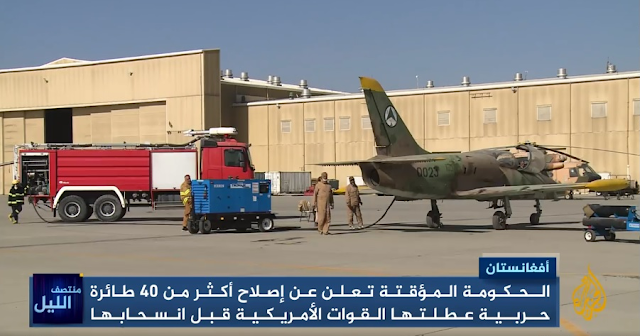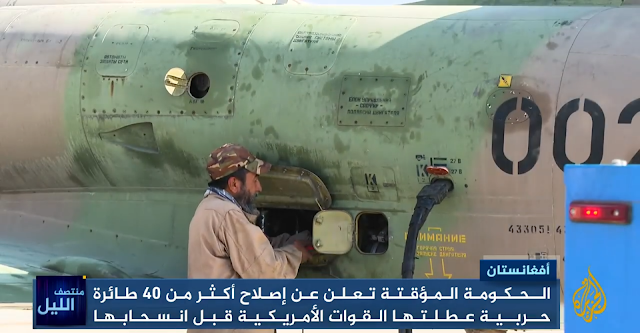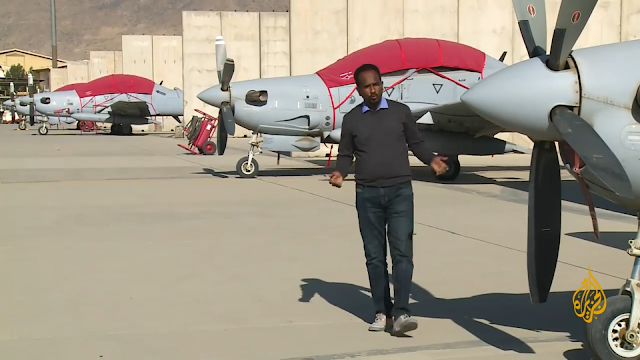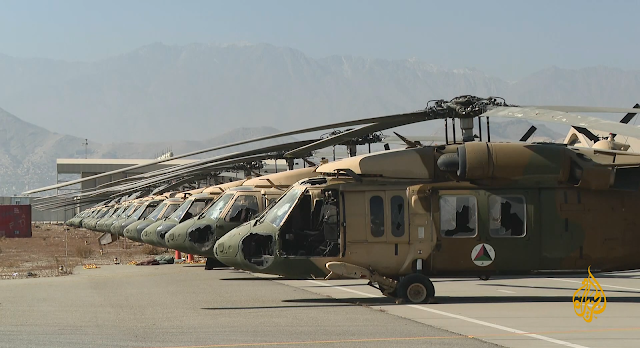By Stijn Mitzer and Joost Oliemans
A report by Al Jazeera from Kabul International Airport (IAP) shows that the new Afghan Air Force is currently working on introducing a fast jet capability to its air force. [1] The footage shows an L-39 undergoing an engine test after languishing in storage at Kabul IAP since the early 2010s. [2] Even though the United States saw little use in the operation of Mi-24 attack helicopters and L-39C jet trainers by the Afghan Air Force, both types were maintainted in operational condition, even though the L-39s are not believed to have flown in the past several years.
Afghanistan received a total of 26 L-39Cs from Czechoslovakia in the late 1970s. [3] These entered service with the 393rd Training Regiment at Mazar-e Sharif air base in northern Afghanistan. Just three L-39s are believed to have survived the Civil War of the 1990s and the United States invasion of Afghanistan in an intact condition. [3] After an overhaul in Russia, the new Afghan Air Force continued to fly these aircraft for several more years. But rather than being used to train pilots on jet aircraft, the L-39s now flew to take part in ceremonial events such as parades.
The L-39Cs come equipped with one hardpoint under each wing, which can be used to either carry 57mm UB-16 rocket pods or unguided bombs up to 250kg. It seems plausible that the L-39s, along with most other aircraft now in service of the new Afghan Air Force, will be flown and maintained by personnel of the old Afghan Air Force. Interestingly, the Taliban continues to make use of the old Afghan Air Force roundel for the time being.
Taliban forces will likely also attempt to bring back several A-29Bs back to operational condition. These offer far superior capabilities over the L-39s. However, most aircraft are believed to have suffered damage to their cockpits as a result of damage caused by U.S. forces as they sought to prevent future use of Afghan Air Force assets.
Taliban forces have also sought to bring back several An-32 transport aircraft back to operational status. These aircraft had been officially retired in June 2011 as the United States attempted to push the Afghan Air Force to move operations over to the C-27 program, which ended in financial and operational disaster after a lack of maintenance support prevented their operations. The C-27s were ultimately scrapped while many of the An-32s were retained in a semi-operational condition. The footage by Al Jazeera shows at least five An-32s and An-26s being worked on. These will likely form the backbone of the new Afghan Air Force.
In addition to showing that flight operations with several UH-60 Blackhawks are still ongoing, the footage also shows a row of eighteen UH-60 Blackhawks that are either waiting to be repaired or are damaged beyond repair as a result of sabotage caused by U.S. forces. In case of the latter, they will likely end up as a source of spare parts to keep other UH-60s flying, providing the Taliban with a steady source of spare parts for years to come.
[3] Wings over the Hindu Kush Air Forces, Aircraft and Air Warfare of Afghanistan, 1989-2001 https://www.helion.co.uk/military-history-books/wings-over-the-hindu-kush-air-forces-aircraft-and-air-warfare-of-afghanistan-1989-2001.php
Disaster At Hand: Documenting Afghan Military Equipment Losses Since June 2021 until August 14, 2021

.png)












